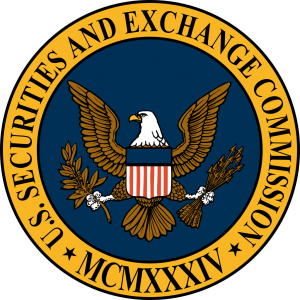 No, it’s not just the change in administration – though when it comes to ESG and Sustainable Investing, it’s hard to imagine a greater contrast than between the Trump and Biden administrations. The blizzard of activity from the Securities and Exchange Commission in the last several months is certainly part of the Biden Administration’s “whole government” approach to climate change and the transition to a low-carbon economy.
No, it’s not just the change in administration – though when it comes to ESG and Sustainable Investing, it’s hard to imagine a greater contrast than between the Trump and Biden administrations. The blizzard of activity from the Securities and Exchange Commission in the last several months is certainly part of the Biden Administration’s “whole government” approach to climate change and the transition to a low-carbon economy.
Equally importantly, the SEC’s actions are part of a growing recognition among regulators of the importance of climate change and ESG issues to investors and markets – see our September event with the authors of the Ceres report on Addressing Climate Change as a systemic risk for more on
At the same time, the SEC’s increased focus on climate change and ESG are simply reflective of its core mission to protect and inform investors and ensure orderly markets. The SEC first took note of climate change in guidance issued in 2010. We noted at the time during CFA society sessions in Boston and New York that the guidelines “simply reflect a recognition that climate change may be a material issue and therefore should be evaluated and considered for appropriate disclosure.”
Fast forward to 2021. In her request for comments on March 15th, 2021, Acting Chair Allison Herren Lee noted that since 2010 “investor demand for, and company disclosure of information about, climate change risks, impacts, and opportunities has grown dramatically”. Naturally, that level of interest raises the question of whether company disclosures provide sufficient information to investors. During 2020, two SEC sub-committees recommended that the SEC update its reporting requirements to include “material, decision-useful ESG factors”, and that standards for disclosure should be adopted.
The SEC’s actions included recognizing the concern many of us in the sustainable investing community share – that the otherwise welcome rapid growth in sustainable investing products means that some firms are bringing poorly designed, inadequately-researched products to market that are not accurately and appropriately disclosed to investors. The fact that Sustainable Investing includes a range of approaches and methodologies that do not have a single set of agreed-upon standards contributes to the challenge. But that diversity is ultimately a strength, bringing breadth, depth and durability. Our responsibility as investment professionals is to understand that complexity, selecting and recommending offerings that are appropriate for clients and ensuring that we and they fully understand them.
The April 9th, 2021 Review of ESG Investing Risk Alert from the SEC’s Division captures all this effectively. Despite the title, it will not provide support for the naysayers still insisting that ESG and Sustainable Investing is a passing fad, marketing hype or both. It’s instead a clear-eyed assessment of the challenges, risks and opportunities.
The alert opens by noting that ESG is a complex animal made up of multiple approaches, defined in different ways and can not be reduced to a simple, universal set of standards. What logically follows is that this complexity can cause confusion and therefore be a source of risk.
The three areas of SEC Examiners’ focus are not unique to ESG and Sustainable Investing. In fact they are boringly basic and would apply to virtually any new area of investment products:
- Portfolio Management
- Performance Marketing and Advertising
- Compliance Programs
SEC Examiners have observed both weaknesses and strengths in firms’ handling of ESG issues, and the brief draws attention to both. The alert does not have force of law, and it does not requires firms to take any specific actions. But it’s well worth reading for sound advice on what to do and what not to do when developing and marketing ESG products.
See a list of Resources and Links for this topic.
